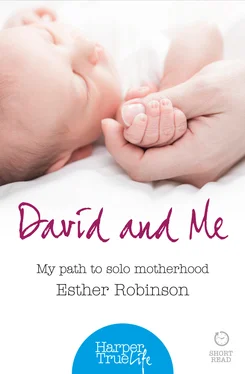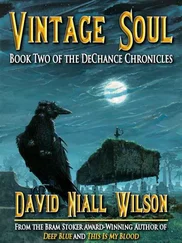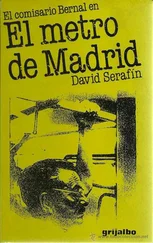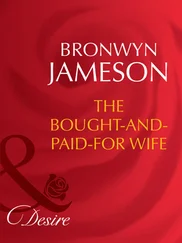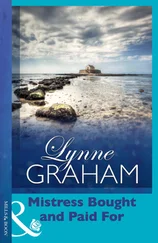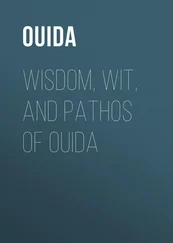Like the start of any research today, my first step was to consult Professor Google, and I was incredibly encouraged by what I found. There were whole online communities of women seeking solo motherhood for a raft of reasons, in which nurturing support and guidance was offered by women who had trod the path then decided to reach out to others and show them the way. It became clear, immediately, that solo motherhood was far from an isolating experience. The support and encouragement that was there in front of me was unlike any I had seen in any kind of community – online or otherwise.
I took my time researching, watching online forums, reading about the lives and challenges of solo mums and, I guess, procrastinating. I learned that moving towards a decision can take time, however inevitable it was that the conclusion would be ‘yes’.
Unfortunately, shortly after I had made this decision, just as I was poised to take action, a close family member needed treatment for cancer. There was no question where my energy should be directed and so the baby plans went on hold. Once a full recovery had been made, my fortieth birthday had been celebrated and a raft of work was completed, I was staring down the barrel at 42 and I knew I needed to take action.
I learned that the first thing to do was go for a series of blood tests to check my levels of certain hormones, for example, the follicle-stimulating hormone (FSH). The result, roughly translated, means the higher the reading, the closer you are to menopause. Fortunately, mine was exactly what you’d expect for a pre-menopausal woman. The Anti-Mullerian Hormone (AMH) test was another – this gives an indication of ovarian reserve; in other words, how many eggs might be left in my ovaries. My result for that was great, too; it was at a level that might be expected for a woman a decade younger than me. When it comes to fertility, I was discovering, your chronological age isn’t everything; biology counts too.
‘Time is on your side,’ my GP said when he explained the results. He was very supportive. I had been anxious about discussing my plans with him, because several women I knew had been met with obstruction and judgement when they had discussed their plans for solo motherhood with their GPs. In fact, the reactions from some GPs were nothing short of outrageous, which had meant the women were forced to pursue treatment without the support of a primary healthcare provider. I did not want that to be the case for me so I was immensely grateful when my GP showed interest and explained what he could offer on the NHS and what would have to be paid for privately. When he sensed my hesitation he asked me why.
‘What’s stopping you going ahead?’
‘I have such a good relationship with my dad but if I’m a solo mum, my baby won’t have that opportunity.’
‘How old is your dad?’
‘He’s 70.’
‘Why not let him be a granddad?’
That simple comment focused my mind and set my resolve. It was one of the most influential factors in my decision-making process.
Other investigations at the time revealed an ovarian cyst and uterine polyps – which both necessitated surgery. It was frustrating not to be able to get on with baby-making, but there was no option but to undergo a hysteroscopy and laparoscopy – privately, to avoid lengthy waiting times. Once the results came back it was reassuring to know that both the polyps and the cyst were benign and that my gynaecological health was good. I spoke to the consultant who treated me about my plans and he, too, was extremely positive.
‘Are you sure you don’t want to do this with a partner?’ he asked. ‘You can meet someone.’
‘I don’t want a partner,’ I replied without hesitation. ‘I want a baby.’
Despite my certainty, I had surprised myself with my reply.
‘I understand,’ he said. ‘I can refer you.’
While waiting for an appointment slot, I emailed, rang and texted many women who had either become solo mothers or were seeking to do so, and I started to make plans. I didn’t ever face any opposition from my family. We had at times spoken about the sperm donor route to motherhood in a light-hearted, ‘that’s always a possibility’ kind of way. I didn’t have to broach the subject from scratch, but there is a difference between discussing something hypothetically and discussing it with intent. ‘That’s always a possibility’ became ‘how can we make this work?’ and it felt exciting and daunting in equal measure.
I knew I didn’t want to share my plans with all my friends and extended family initially, but my parents and brother and a few close friends were involved from the very start. At no time did any of them express doubt that I could cope with the treatment process or being a solo mum, which was incredibly supportive. We discussed the practicalities – being a solo mum and working, childcare arrangements when necessary, ensuring that any child born had plenty of male influences around, who would care for the child if I was not able to, and so on. I remember having breakfast out with my brother, Harry, and asking him what he thought of my plans.
‘Really, honestly, do you think I’d be mad to go ahead with being a solo mum?’
‘I think you’d be mad not to,’ he said, with no hesitation.
Ultimately, although this decision was the biggest I am ever likely to make in my life, it was one that was made in layers with each new encouraging comment or supportive gesture, so that by the time I actually started to talk about it with doctors, bringing the dream to life, it felt like a small step to take. The toughest part had been the transition from ‘solo motherhood is always a possibility’ to ‘I’m going to look at this seriously’ (and it’s hard to convey how challenging that was).
From that point on, each step flowed.
Several of the solo mums who were local to me got in touch via the Fertility Friends website. Knowing that so many others had trod this path before me and that they were willing to help me achieve my dream was incredibly reassuring. Initially I arranged to meet a lady called Stella. We did similar jobs and I was interested to find out how she coped, what the network of solo mums was like in the area, how she’d found treatment, and to ask her a whole load of other questions that were buzzing round my mind. We met in a busy café after work one day. I was late and as I walked through the door I immediately saw a mum and daughter sitting opposite one another, chatting. Stella’s girl, Mary, was tall for her age and seemed shy at first in the noisy café. I said hello to them and handed Mary the book I had bought her. We chatted and I began to suspect that the bond between solo mums and their babies is very special. That’s not to say that the bond between all babies and their significant carers isn’t special, but what I witnessed was distinctive and further cemented my resolve to be a solo mum by choice.
It was some time before I heard from the clinic I’d been referred to by my gynaecologist, by which time I was in the United States for work. On my return, I made an appointment and worked hard at keeping the nerves (what the hell was I doing?) and the excitement (I might be a mum!) in balance.
‘There is nothing like a dream to create the future.’
Victor Hugo, Les Misérables
It was a 70-mile round trip to my first appointment at a fertility clinic. I arrived feeling conspicuous. Despite knowing of several solo mums who had been helped by the same clinic, I wondered what the people there would think of my plans.
If I had known then what I know now, I would have had different expectations from my initial consultations and I would have done some research and chosen a clinic that best suited my needs. With hindsight I can see that this clinic had a rather parochial way of going about things. Having been referred by my gynaecologist, I had gone along to the appointment under the impression that there was little to distinguish between clinics, and at that stage I didn’t imagine that quality of service could vary so wildly between them. I was also naïve about the fertility industry.
Читать дальше
